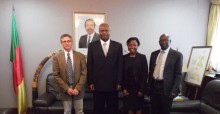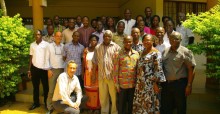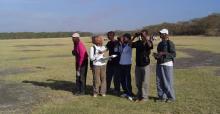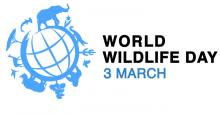Une série de réunions relatives à l’AEWA – sous la responsabilité de l’Unité de soutien technique (UST) et de la coordinatrice de l’Initiative africaine de l’AEWA – a eu lieu au Cameroun du 9 au 17 juin 2014 afin de renforcer les capacités en matière de formation à la conservation de la nature et de promouvoir l’adhésion du pays à l’AEWA. La semaine de réunions avec les parties prenantes camerounaises a commencé par une mission sur le terrain à l’École de faune de Garoua, du 9 au 13 juin 2014, entreprise par des représentants de l’Unité de soutien technique (UST) de l’Initiative africaine de l’AEWA.






